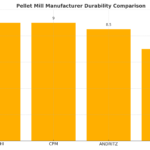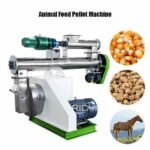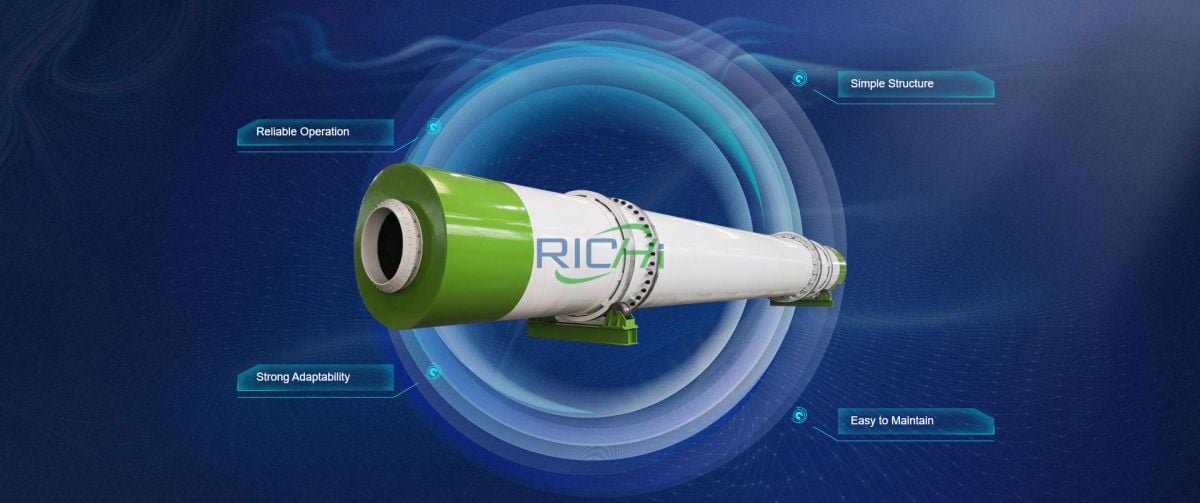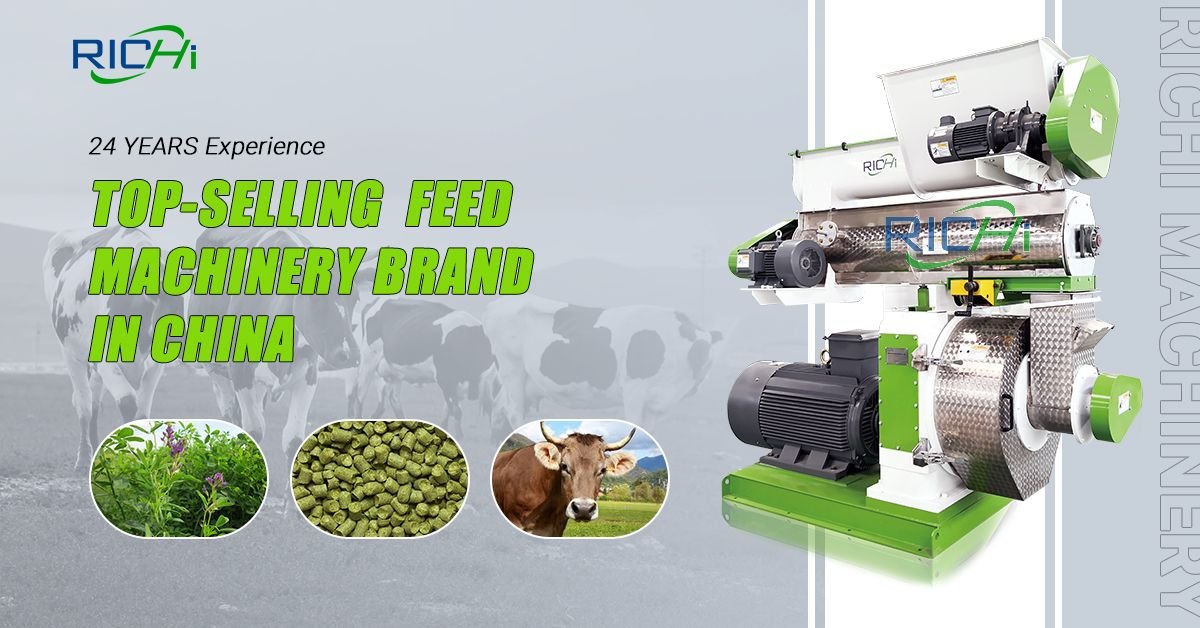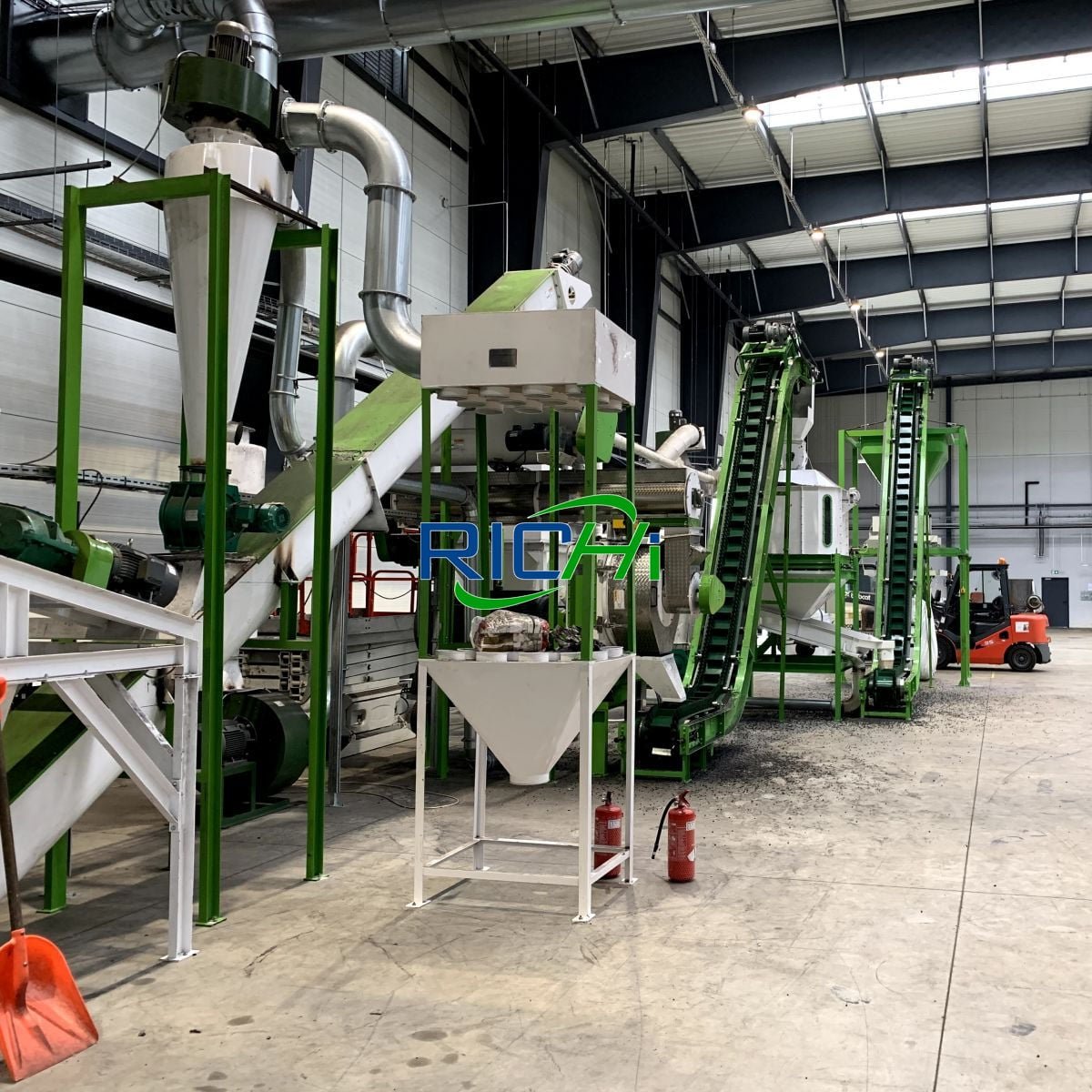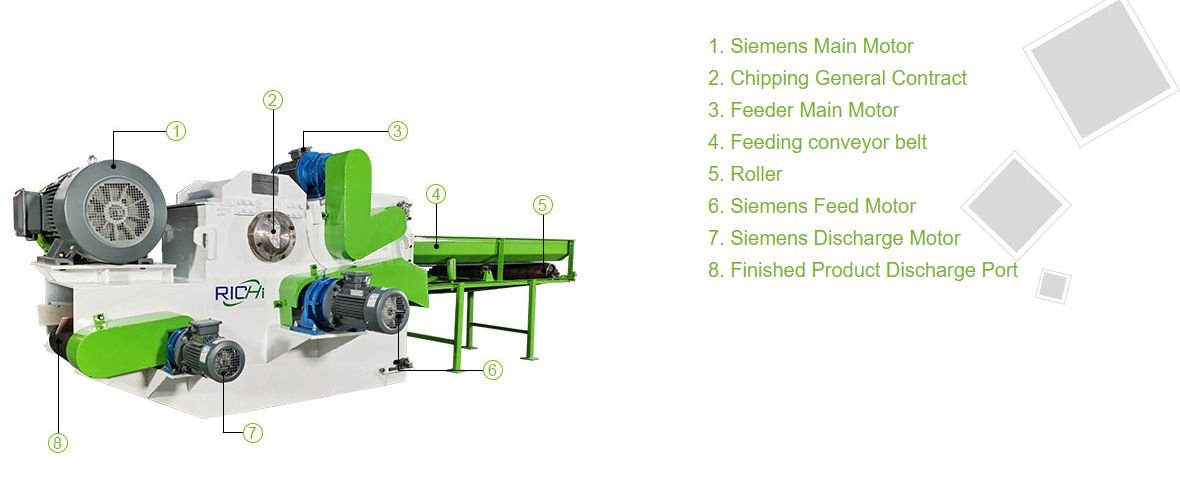Wood chip dryers have long been essential in the wood processing and biomass industries, primarily designed for drying wood chips and sawdust. However, the efficiency and adaptability of these dryers have sparked interest in their potential for drying a variety of other materials. This article investigates the capability of wood chip dryers to handle materials beyond their traditional applications.
The Versatility of Wood Chip Dryers
Wood chip dryers, especially rotary drum dryers, are recognized for their robust construction and capacity to manage materials with diverse characteristics. This versatility makes them potentially suitable for various drying applications. Key features that contribute to their adaptability include:
- Adjustable Retention Time: The ability to control the duration materials spend inside the dryer allows for flexibility in meeting different drying requirements.
- Temperature Control: Accurate temperature management enables the drying of heat-sensitive materials without damage.
- Customizable Internal Design: The drum’s internal structure can be modified to accommodate different material properties, enhancing efficiency.
- Scalability: Wood chip dryers come in various sizes, making them adaptable to different production scales.
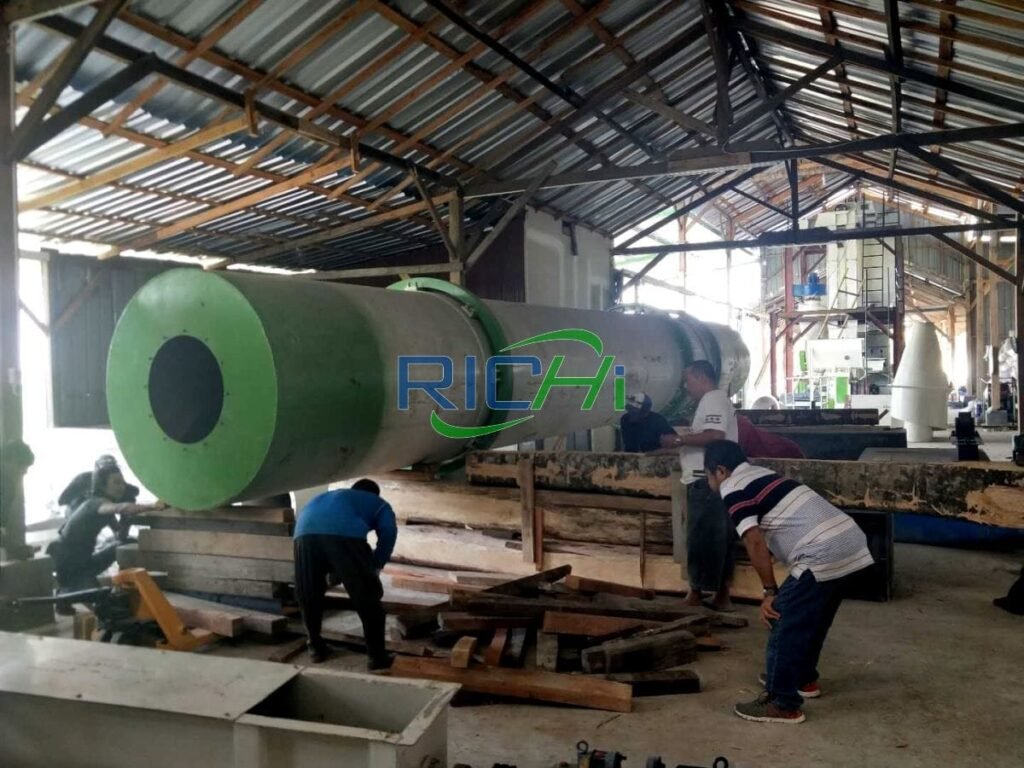
Other Materials Suitable for Wood Chip Dryers
Wood chip dryers have shown promise in drying various other materials, including:
- Agricultural Products:
- Grains: Crops like corn, wheat, and rice can be effectively dried using these systems.
- Biomass: Agricultural residues, such as straw, corn stalks, and sugarcane bagasse, are suitable candidates for drying.
- Animal Feed: These dryers can process ingredients for animal feed, ensuring they reach the correct moisture content for storage and use.
- Industrial By-products:
- Paper Mill Sludge: Wood chip dryers can handle the high moisture content typical of paper mill waste.
- Mining Concentrates: Certain mineral concentrates can be dried using adapted wood chip dryers.
- Chemical Products: Some chemical intermediates and end products can be effectively processed in these dryers.
- Food Industry Materials:
- Dried Fruits and Vegetables: Large-scale production of dried food products can be achieved.
- Coffee Beans: The post-harvest drying of coffee beans is feasible.
- Nuts: Various types of nuts can be dried to optimal moisture levels using these dryers.
- Environmental and Waste Management:
- Biosolids: Wood chip dryers can dry sewage sludge and other biosolids for further processing or disposal.
- Contaminated Soils: Drying soils as part of remediation efforts is possible.
- Recycling Materials: Certain recyclable materials can be dried before further processing. (Related post: Straw Dryer)
Advantages of Using Wood Chip Dryers for Other Materials
The application of wood chip dryers to drying diverse materials presents several advantages:
- Energy Efficiency: Wood chip dryers, particularly those equipped with heat recovery systems, can operate with high energy efficiency, translating to lower operational costs across various materials.
- High Throughput: These dryers can handle large volumes continuously, making them suitable for industrial-scale operations in numerous sectors.
- Uniform Drying: The tumbling action in rotary drum dryers ensures even drying, which is crucial for maintaining quality in many materials beyond wood chips.
- Flexibility: The ability to adapt wood chip dryers to different materials with minimal modifications enhances their appeal for multi-product facilities.
Considerations and Limitations
While wood chip dryers exhibit potential for drying various materials, several factors must be considered:
- Material Properties: The physical and chemical properties of the materials being dried are critical. Factors like particle size, density, and heat sensitivity need to be evaluated to ensure compatibility with the dryer.
- Contamination Risks: When transitioning between different materials, thorough cleaning is essential to avoid cross-contamination, especially in food and pharmaceutical applications.
- Regulatory Compliance: Some industries, particularly food and pharmaceuticals, have strict regulations regarding drying equipment. Modifications may be necessary to meet these standards.
- Wear and Tear: Different materials can lead to varying levels of wear on dryer components, potentially requiring more frequent maintenance or the use of specialized materials in the dryer’s construction.
- Emission Control: Drying certain materials may produce emissions different from those generated when drying wood chips, necessitating upgrades to existing filtration and emission control systems.
Case Studies
- Agricultural Waste in India: A study in India showcased the successful adaptation of a wood chip dryer for drying agricultural waste, including rice husks and coconut shells. The dryer’s efficiency in handling these materials was comparable to its performance with wood chips.
- Paper Mill Sludge in Canada: A Canadian paper mill repurposed a wood chip dryer to process paper mill sludge, significantly reducing waste volume and creating a product usable as a fuel source.
- Coffee Bean Drying in Brazil: A large coffee producer in Brazil utilized wood chip dryers for coffee bean drying, achieving consistent quality and shorter drying times compared to traditional methods.
Conclusion
Wood chip dryers have shown considerable potential for drying materials beyond their traditional applications in the wood processing industry. Their versatility, energy efficiency, and adaptability make them suitable for a variety of applications across sectors such as agriculture, industry, food processing, and waste management.
However, successfully adapting wood chip dryers for different materials requires careful consideration of material properties, regulatory requirements, and potential modifications. Each application should be evaluated individually, taking into account energy efficiency, product quality, and operational costs.
As industries increasingly seek efficient and versatile drying solutions, wood chip dryers present an intriguing option. Their capacity to handle diverse materials with minimal modifications makes them an appealing choice for businesses aiming to enhance their drying capabilities or improve existing processes.
Looking ahead, we may witness further innovations in wood chip dryer design, specifically engineered to optimize performance with non-wood materials. Future developments could include advancements in material handling systems, improved temperature control mechanisms, and enhanced cleaning systems to facilitate smooth transitions between different materials.
In summary, although wood chip dryers were initially designed for a specific purpose, their potential extends far beyond wood processing. With appropriate adaptations and careful consideration of material properties and regulatory standards, these versatile machines can provide efficient drying solutions across a wide range of industries and applications.
For details please contact: Richi manufacture
WhatsApp:86 138 3838 9622
Email:enquiry@richipelletmachine.com



